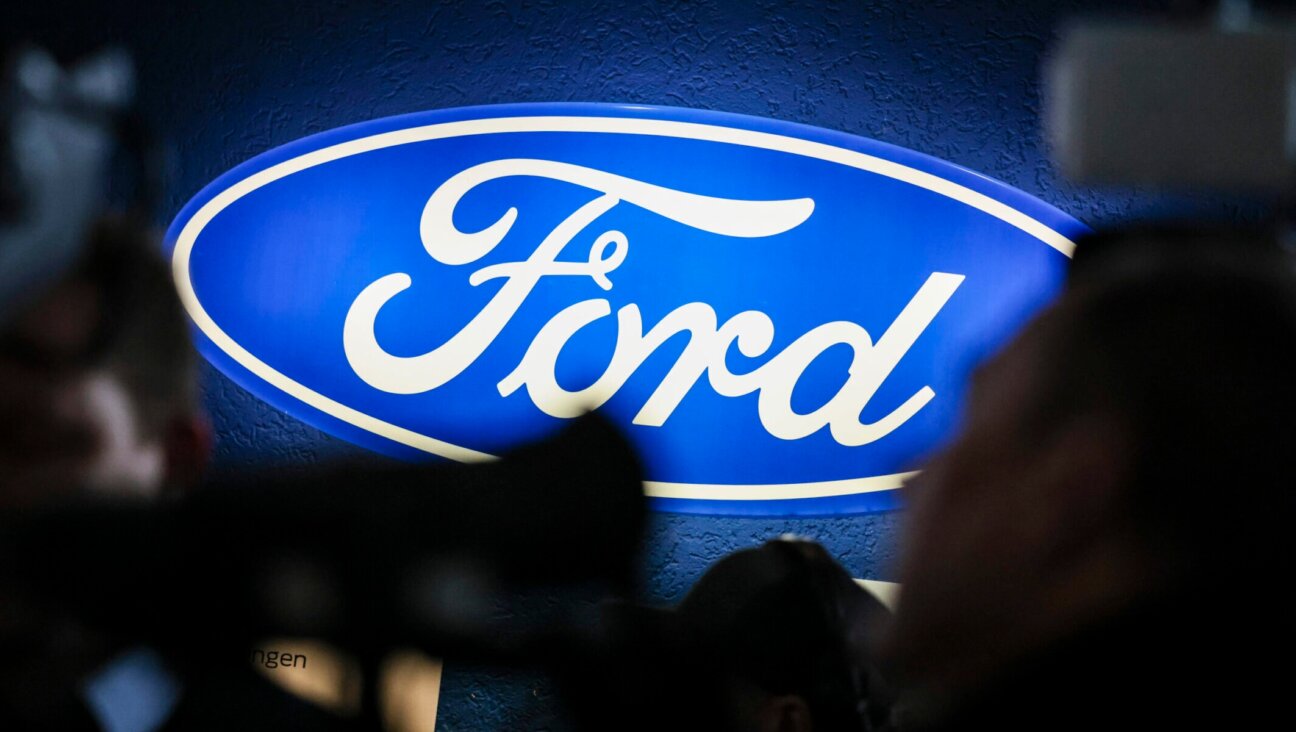Meet the Jewish fisherman from Alaska who could flip the Senate blue

Senate candidate Dr. Al Gross, independent from Alaska Image by Al Gross/YouTube
The Jews of Alaska call themselves “The Frozen Chosen.” There are only a few thousand of them – people are likely more familiar with fictional depictions of Alaska Jewish life in “The Yiddish Policemen’s Union” or “Northern Exposure.” But in the real world, one community member is about to get a much higher profile: Dr. Al Gross, a U.S. Senate candidate who could flip the chamber to the Democrats in November.
“I feel a sense of responsibility to the state, in the way some other people might not, because of my background,” said Gross, 58.
In addition to the Jewish values of social justice, Gross also finds inspiration in his father, the former state attorney general who implemented Alaska’s famed oil dividend payment system. His father was a lawyer; Gross is a doctor, an orthopedic surgeon who worked his way through college as a commercial fisherman. Gross is a first-time candidate and an independent. And, oh yeah, he once killed a grizzly bear in self-defense.
“I’ve had countless encounters with both brown bears and black bears,” Gross said in a phone interview. Gross and a friend were hunting ducks when a bear charged at them, forcing them to shoot. “It was not a good ending to an otherwise great day,” he said.
He also got the chance to observe the state’s leaders as they worked with his father, Avrum, a liberal Democrat who moved north after law school because he figured Alaska would be a fun place to live for a while – but never left. Republican Gov. Jay Hammond, who called Avrum a “long-haired hippie-type Democrat from New York,” appointed him anyway, saying it was because he was the best attorney Hammond knew.
Gross was immersed in political life, but living in Juneau left him isolated from many other Jews. To learn the Torah reading for his Bar Mitzvah, he recorded himself practicing on a cassette tape, and mailed it to a rabbi in San Francisco, who would mail back a new tape with more instructions. For his ceremony, the rabbi flew from California to Juneau with the Torah.
Gross worked for four months on a kibbutz in Israel, which he said had a “profound impact” on him and influenced how he’d think about foreign policy as a senator. “Coming from the biggest state in the union and going to one of the smallest countries in the world” put Israel’s military needs in perspective for him, he said, adding that as senator he’d be a “staunch defender” of the Jewish state.
Gross also left Alaska to get his medical degree at the University of Washington, which hosts the program for several northwestern states. He paid his way through school by catching salmon on his boat, the Ocean Pearl, and selling them to wholesalers. Medical school is also where he met his wife Monica, a pediatrician-turned-healthcare consultant, with whom he has four kids. He returned to Alaska, as he’d always planned, and set up a successful orthopedic practice, earning up to $2.5 million a year.
But over the past few years, Alaska’s economy declined, with deleterious effects. It has one of the highest unemployment rates and is the state with the most expensive health care system – part of the reason he was able to earn so much in the first place. Gross left his practice in 2013, and he and Monica got masters’ degrees in public health, which they used to become consultants, working to lower medical costs. Now, he’s taking the next step by running for office, buoyed by a fundraising haul of $3 million so far (including around $600,000 from himself).
Gross’s opponent is first-term Sen. Dan Sullivan, who in 2009 was appointed state attorney general (Gross’ dad’s old position) by then-Gov. Sarah Palin. Unlike Alaska’s other senator, the moderate Republican Lisa Murkowski, Sullivan doesn’t make many waves in Washington — Politico did not write an article about him in the entire year 2019. (Another strike against the incumbent, Gross argues in one of his ads, is that Sullivan was born in Ohio).
“I stepped up to do this because the Alaska economy has been failing, we’ve been losing Alaskans to the Lower 48 for the past few years, and despite that labor loss, we had the highest unemployment in the country,” he said.
Although Gross, like about half of Alaskans, is a registered independent, he’s running on a standard liberal platform – expanding Medicare with a public option, raising the minimum wage, fighting climate change, implementing campaign finance reform – and has been endorsed by the Democratic Senatorial Campaign Committee.
However, he said, “While a lot of my values are to the left, and I will caucus with the Democrats, not all of them are. I think of myself as an independent thinker.”
He differs, for example, on the question of a universal basic income, espoused by some Democrats, such as former presidential candidate Andrew Yang. Yang’s “Freedom Dividend” is similar to the annual oil revenue payments that Gross’ father implemented in Alaska. But Gross says that what works for Alaska may not work for the whole country.
“The UBI check here in Alaska has been a great program, but any program like that, you have to be careful you don’t disincentivize going back to the workforce,” he said.
But if the state had problems when Gross filed to run last year, the coronavirus and its economic fallout have caused even more since. Gross said that Alaska’s isolation would actually make it easier to stop the spread – assuming, that is, that the state gets enough tests, which so far it has not. Gross said that he had a friend who didn’t get his results back for 18 days.
The state may also struggle to provide essential health services, he said, because Republican Gov. Mike Dunleavy initiated “draconian budget cuts” so severe that there’s now a recall campaign – and that was before the oil crash, which will likely affect the state’s budget even more.
Gross said that the White House should be playing a larger role, not delegating to the states. “It’s horrifying to see what the federal government is doing,” he said. “There’s been no leadership. Our president is recommending to drink bleach and inject Lysol. It’s just scary.”
The pandemic has also hindered Gross’s ability to meet voters – already difficult in a state the size of Mongolia. But Gross has been holding tele-town halls and is frequently interviewed on local radio. “Given the fact that we’re hunkered down here in Anchorage, I think we’re being very effective, for fundraising and also for getting our message across,” he said.
Does Gross have a chance? Most prognosticators don’t think so – the respected Cook Political Report ranks the state as “Solid Republican.” But Gross argues that Alaska is much more of a purple state than people give it credit for. He out-fundraised his Republican opponent in the latest quarter, and Alaska had a Democratic senator as recently as 2014. President Trump only won Alaska in 2016 with 51% of the vote, but Hillary Rodham Clinton only got 37%.
That year, Alaska was the state with the best result for third-party candidates. As an independent, Gross might have an advantage.
Gross said that he hopes to be able to hit the road again within a month or two, so that he can engage voters face to face. He’ll be getting around by car, plane – and the Ocean Pearl.
Aiden Pink is the deputy news editor of the Forward. Contact him at [email protected] or follow him on Twitter @aidenpink
A message from our Publisher & CEO Rachel Fishman Feddersen

I hope you appreciated this article. Before you go, I’d like to ask you to please support the Forward’s award-winning, nonprofit journalism during this critical time.
We’ve set a goal to raise $325,000 by December 31. That’s an ambitious goal, but one that will give us the resources we need to invest in the high quality news, opinion, analysis and cultural coverage that isn’t available anywhere else.
If you feel inspired to make an impact, now is the time to give something back. Join us as a member at your most generous level.
— Rachel Fishman Feddersen, Publisher and CEO






















